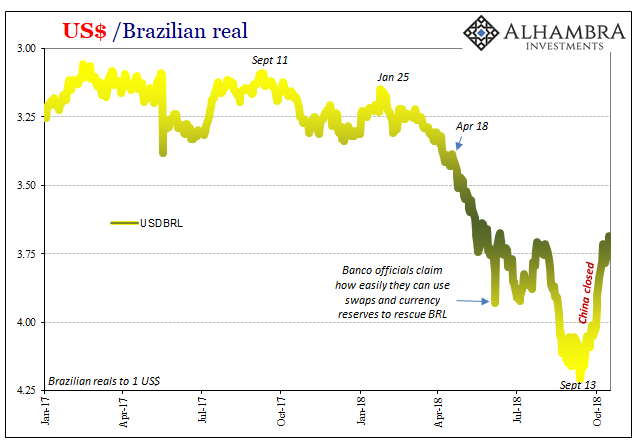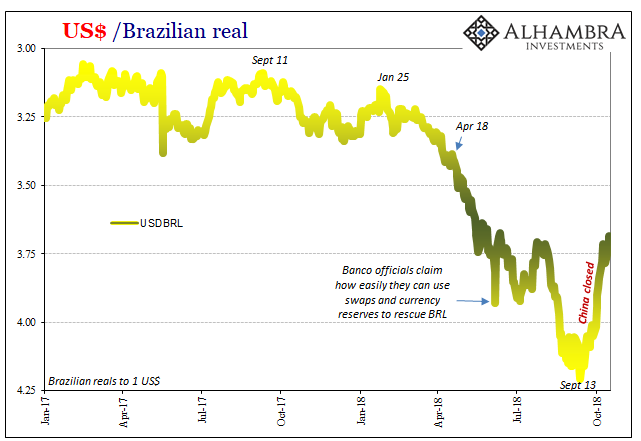
If it sounds like the United States is divided and on the verge of some really nasty times, what must it be like in Brazil? In early September, Presidential candidate Jair Messias Bolsonaro was stabbed in plain sight at a campaign rally, the attack caught on video and widely circulated worldwide. It was an ugly reminder of the direction being taken in far too many places.
Called Mito by supporters, the former Army Captain prophetically tweeted in November 2016 that Brazil in 2018 would follow Donald Trump’s populist example. The first round of Presidential voting held earlier this month proved him right. Bolsonaro fell just short of the required 50% majority, but now he faces only Fernando Haddad of the Worker’s Party in the runoff. Polls show Mito coasting easily to victory.
Parabéns ao povo dos EUA pela eleição d @realDonaldTrump .Vence aquele q lutou contra “tudo e todos”. Em 2018 será o Brasil no mesmo caminho
— Jair Bolsonaro 1️⃣7️⃣ (@jairbolsonaro) November 9, 2016
Some are claiming that the swing of electoral fortunes in favor of the Social Liberal Party since Bolsonaro’s near-assassination explains the favorable shift in Brazil’s currency. The real had plummeted to less than 4.20 to the dollar by September 13, a low point posted around the same time as Mito picked up sympathetic support that may have put him over the top. By September 28, though, the exchange value was still 4.05.
The real’s somewhat surprising turnaround really took place during the first week in October, in the days leading up to the first round of voting. Was that increasing confidence for Bolsonaro’s victory?

If not, maybe BRL’s rebound was tied to the political activities of one of Brazil’s neighbors. Next door in Argentina, that country’s currency, the peso (ARS), had fallen into an even steeper decline.
The country’s President Mauricio Macri had asked for an IMF rescue in May, receiving the largest in the organization’s history in early June. But, despite being disbursed the first huge tranche of funding, it would not halt the crash in ARS. As it performed a dangerous freefall at the end of August, Macri would appeal again to the IMF desperately pleading for the second tranche to be moved way up.














